Latest News
May 2022 | |
 | West Australian Bone Research CollaborationThe University of Notre Dame Australia is offering two (2) (tax-free) PhD stipend scholarships, $30,000 per annum, for up to three years. We are seeking applications from highly motivated high achieving domestic or international candidates interested in pursuing a PhD with the WABRC. Applications close 10 June 2022. To find out more about projects on offer and how to apply, visit the WABRC website. You can also view the ad on Seek. |
February 2022 | |
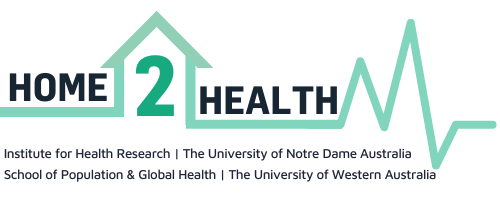 | IHR welcome Home2Heath team led by Prof Lisa Wood.The Home2Health team is led by Professor Lisa wood and is a collaboration between the Institute for Health Research at The University of Notre Dame, and the School of Population and Global Health at The University of Western Australia. Its underlying research ethos is “to undertake research that is useful and relevant to the real world to reduce health inequalities”. |
August 2020 | |
 | COVID-19 Health Survey underwayThe impact of the COVID-19 lockdown on the Western Australian community is largely unknown. To address this shortfall, IHR researchers at The University of Notre Dame Australia are inviting Western Australians over the age of 18 year to complete an online survey to provide insights on how the COVID-19 lockdown impacted on their “body and mind”. The outcomes of the study will help inform development and delivery of health promotional activities at state and local government level should WA be impacted by a second wave of the virus or similar emergency. This state government funded survey can be found here and takes about 20 minutes to complete. |
 | World leading research in breast cancerIHR staff member, Professor Max Bulsara was a key part of an international research team that has confirmed that intraoperative radiotherapy, delivered as a single dose during lumpectomy, can effectively replace postoperative whole breast external beam radiotherapy for early breast cancer. This ground breaking research has just been published in the British Journal of Medicine. The study spanned over 10 years and involved over 2,250 patients in what is known as a “non-inferior trial”. This is where new clinical treatment is shown to produce as good clinical outcomes as existing management strategies but can have other significant benefits. The study showed that a single intraoperative dose of radiotherapy was just as effective as a standard daily fractionated course (three to six weeks) of whole breast radiotherapy with no difference in disease recurrence or survival. The findings of this study were also reported in The Times newspaper. |
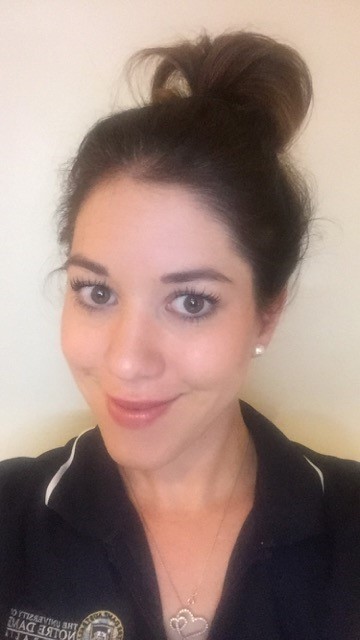 | WAHTN FellowshipRecent UNDA PhD graduate, Dr Sarah Harris, was recently awarded a Biostatistical Fellowship in a partnership between WAHTN and the IHR’s Professor Max Bulsara. Working with the WAHTN’s Clinical Trials and Data Management, Sarah will gain firsthand experience assisting hospital-based clinicians design and analyze research data. Sarah is also employed by the IHR to help develop our online statistical training modules. |
 | Defence Centre grant successIHR researcher, Dr Paola Chivers, is a chief investigator in a collaborative research project being led by IHR adjunct, Dr Nic Hart to develop a pre-screening and monitoring tool to stratify new military recruits as skeletally slender or robust, and accordingly identify those who are at higher risk of injury. The Federal Minister for Defence Industry Melissa Price and WA State Defence Issues Minister Paul Papalia announced the awarding of a $150,000 Defence Science Centre Collaborative Research Grant to this team. This innovation will also have application to the WA Police Force and AFL(W) organisations. |
July 2020 | PhD Confirmation |
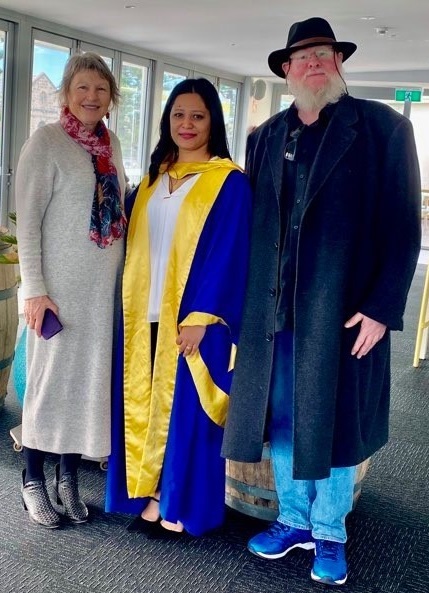 | The IHR staff congratulates Dr Ranila Bhoyroo on the confirmation of her PhD. Ranila’s thesis was titled “Motor planning in children with and without Developmental Coordination Disorder: Behavioural and neurological evidence”. As outlined in one of her recent publications, children with Developmental Coordination Disorder (DCD) demonstrate inefficient motor planning ability with a tendency to opt for non-optimal planning strategies. Her studies seek ways of helping address this problem. In the adjoining photo, Ranila is with her supervisors, Professor Beth Hands and Dr Adam Wigley. Due to COVID-19, Ranila, like other graduates, received her degree via a virtual conferral of qualifications. |
June 2020 | Research grant successes |
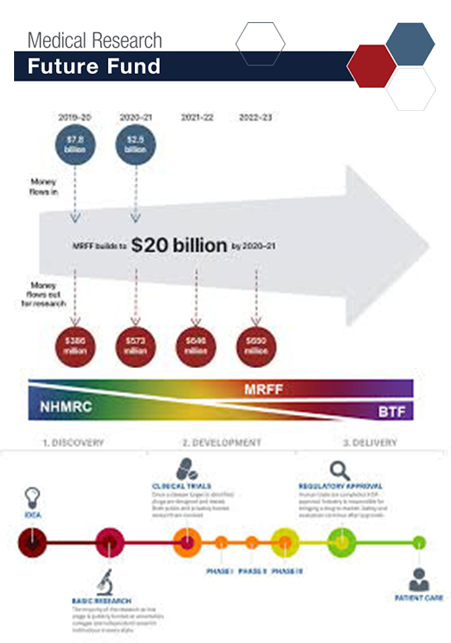
|
Several of the IHR research team recently won substantial grant funding with other collaborative research groups. These include:
Professor Max Bulsara, with Lead researcher Prof Christobel Saunders (UWA), won MRFF funding of $2.07 million to evaluate clinical pathways and patient outcomes for breast MRI in preoperative assessment and staging of breast cancer to help establish when MRI improves patient outcomes and when it does not. Professor Jim Codde, A/Professor Katrina Spilsbury and Dr Aime Powell formed part of a national team led by Prof Penny Webb (QIMR) that won MRFF funding of $2.7 million to investigate variation in care and survival, aetiology and risk factors to Improve ovarian cancer outcomes in Australia via national data linkage. Professor Max Bulsara with Professor Merrilee Needham (UNDA) and a team of national and international researcher won MRFF funding of $1.82 million to clinical trial of Sirolimus (an immunosuppressant) in a rare, untreatable disease - Inclusion Body Myositis (IBM). Professor Jim Codde, Dr Paola Chivers and Professor Caroline Bulsara received $100,000 from the Western Australian government to investigate the impact of the COVID-19 lockdown on the physical and mental well-being of the Western Australian community. |
March 2020 | |
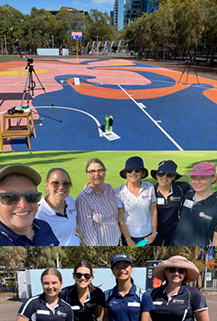
| Recently, IHR staff members, Professor Beth Hands and Dr Amanda Timler hosted Dr Mandy Plumb from the University of Central Queensland in a collaborative study aimed at validating a fundamental movement skills quotient for adolescents. Third year exercise sports science and preventative health students helped collect data from adolescents (aged 12 – 18 years) in their self-reported motor competence (through the use of the Adolescents Motor Competence Questionnaire) and their actual motor competence (completing over arm throws, kicks, hops and jumps). This project builds on previous collaboration between Mandy’s work examining the over arm throw among adolescents in Ballarat, Victoria and North Caroline, USA, and Amanda’s motor competence questionnaire developed during her PhD. |
February 2020 | |
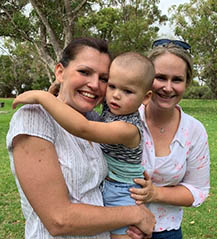
| Preventing cervical cancer: Women talking to WomenPost-doctoral researcher, Dr Aime Powell is investigating the impact of the WA cervical cancer screening program and the national HPV vaccination program on women’s health outcomes. Preliminary findings indicate that only half of WA women participated in the recommended two-yearly screening during 2016-17 and only two-thirds of girls who turned 15 between 2007 and 2011 completed their three-dose HPV vaccination. Aime is now taking this knowledge to the Kimberley region of WA where it is known many Aboriginal women are at great risk of developing cervical cancer and have a high mortality rate from the totally preventable disease. As a first step, Aime has engaged with young Aboriginal women who have developed the disease to help them convince their peers to take the necessary steps to ensure their ongoing health and well-being. Aime and her collaborators are currently seeking funding to roll out their interventional study later this year. |
January 2020 | |
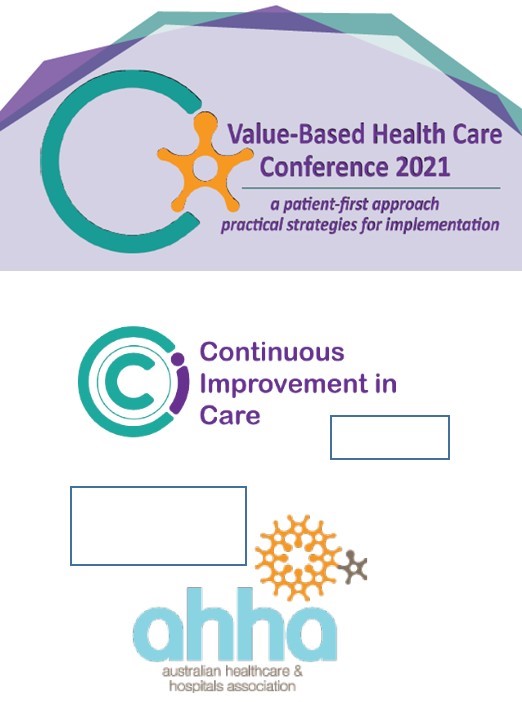
| Save the Date – 23-26 March 2021Several IHR staff are chief investigators on a research project that aims to improve cancer patient outcomes through the use of patient reported outcomes measures as part of their routine clinical management. The research team is hosting a conference on Value-Based Health Care in Perth 23-26 March 2021 which aims to showcase value-based healthcare innovation, initiatives, implementation, research, and training from all areas of the health care system, with discussion on topics as diverse as cancer, stroke, dental health, and more. Focus will be given to practical applications of VBHC, rather than a theoretical approach, with innovative opportunities for involvement and discussions about how to put VBHC into practice. Full details care be found at the VBHC Conference site. |
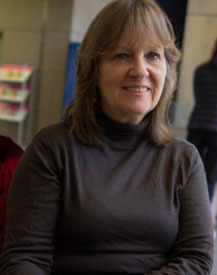
| Congratulations CarolineIt is with great pleasure we announce the academic promotion of Caroline Bulsara to full professor. This promotion is in recognition of her outstanding performance in the areas of Teaching & Curriculum Development, Academic Leadership and Service, and of course, Research & Scholarship. Caroline’s has made an enormous contribution to the University and its HDR students. She has a substantial network of highly regarded and world renowned researchers with whom she collaborates and in many projects, she is a recognised as a Chief Investigator which reflects both her expertise and wide contribution she makes to these projects. In addition, Caroline is often involved in service evaluation projects commissioned by industry partners in the health and aged care sectors. From all of us in the IHR, Congratulations Caroline! |
December 2019 | |

| Award winnerThe presentation of the 2020 research awards from the Spinnaker Health Research Foundation where held on the Notre Dame campus on early December. The event was attended by the Deputy Premier and Minister for Health, the Honorable Roger Cook, Chief Executive South Metropolitan Health Service, Paul Forden and the Assistant Director General WA Health, Prof James Williamson and many other dignitaries and supporters of the Foundation. Among the ten award winners by IHR Master’s student, Fiona Poelchow for her study into the effects of a silicone-based topical dressing on wound healing, pain and scarring in burns patients. Fiona, who works in the Adult State Burns Unit at Fiona Stanley Hospital, is examine the efficacy of a new type of wound healing silicone gel on unhealed burns which is hoped to reduce the overall levels of wound scaring and pain. Providing the keynote address was one of Fiona’s supervisors and previous Spinnaker grant winner, A/Professor Dale Edgar who works within the IHR and the Burns Unit at Fiona Stanley Hospital. |
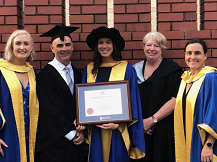
| PhD Graduation2019 has seem many of the HDR students co-supervised by IHR staff members graduate with their Masters of Research or PhD degrees. Among those who received their degrees in late December was Dr Sarah Harris shown here with her supervisors. Sarah’s research examined the impact of head trauma on depressive symptoms in Australian Rules football players. Some of her findings have already been published in the Journal of Science and Medicine in Sport. |
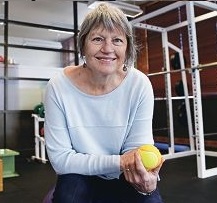
| Final farewell…. Well almost!After commencing her teaching at Notre Dame in 2001 and becoming a lead academic and researcher within the School of Health Sciences in 2006, Professor Beth Hands rose to be an Associate Professor and Associate Dean within the School by 2009. Following this, Beth then became the inaugural Director of the Institute for Health Research through its establishment in 2009 through to the end of 2014 when Professor Jim Codde was appointed to the Directorship. During the last five years, Beth has continued to serve the University and its research students as a part-time research scholar within the Institute. Beth has now formally retired from this role but will continue to supervise her last two PhD students who are due to finish their degrees in early 2020 as an Adjunct Researcher. While Beth has an enormous research legacy, she is also renowned for being a passionate Docker’s supporter and stirring up rivalry between followers of the two Western Australian football teams. Drawing on this and her many other wonderful personal traits, IHR staff members, Louisa and Paola, dressed in team coloured tutus and gave their parting message in a poem. |
October 2019 | |
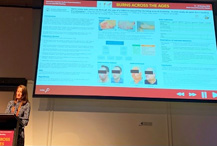 | First presentation by Master’s studentMaster of Research student, Fiona Poelchow, recently presented aspects of her research project at the 43rd Annual Scientific meeting of the Australian and New Zealand Burns Association in Hobart. Fiona, who works in the Adult State Burns Unit at Fiona Stanley Hospital, is examine the efficacy of a new type of wound healing silicone gel on unhealed burns which is hoped to reduce the overall levels of wound scaring and pain. This is an example of several collaborative studies undertaken by IHR researchers and hospital-based clinicians that can lead to immediate benefits for patients and the wider health system. |
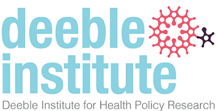 | Project updateAs previously mentioned, several researchers within the IHR are involved with other researchers in the $5 million Continuous Improvement in Care – Cancer project being led by Professor Christobel Saunders. While this project is still rolling out across several hospital sites, the executive team were invited by the Deeble Institute for Health Policy Research to write a brief on the learnings to date of rolling out such a far reaching and complex project in the hospital sector. A news item on the topic can be found here while the full brief is available here. |
 | Broome stats workshopsIn early October, Professor Max Bulsara, A/Professor Caroline Bulsara and Dr Paola Chivers travelled to Broome to provide a series of workshops and one-on-one consultations for research students and staff based on the University’s Broome campus over a three-day period. These ‘hand-on’ workshops aimed to develop quantitative and/or qualitative skills for management of datasets and a basic understanding of how to analyse data from research projects using the appropriate software. Attendees at the workshop greatly valued the expertise and training provided by these IHR staff members while they enjoyed the balmy nights the Kimberley had to offer! |
September 2019 | |
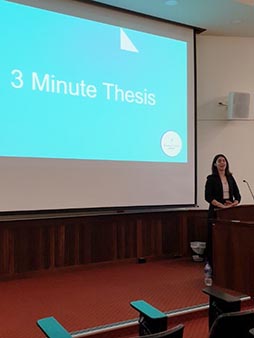 | IHR SponsorshipThe IHR was delighted to contribute some prize money for the best speakers at MSAND Research Interest Group’s inaugural Research Showcase. The event was well attended with three third-year medical students describing their research proposal while two fourth-year students outlined the findings of their study in a 3 minute thesis format (one slide and three minutes to deliver). All of the presenters did amazingly well and it was pleasing to see, this year, everyone received a prize for their efforts. Details of other events offered through the Medical Students’ Association at Notre Dame can be found here. |
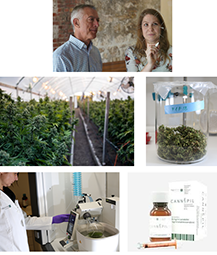 | A long time in the planningAfter eighteen months of researching, writing a research proposals, seeking Ethics approval and meeting other government agency requirements at the state and national level, Dr Amanda Timler is about to start a trial into the potential benefits of medical cannabis in altering the adverse behavioral effects of Dementia. Through our partner organization, MGC Pharma, purified medical cannabis extract will arrive from Slovenia, where the crop is grown and oil extracted, later this month. Details of this study were recently covered on the local Channel 7 News and national Sunrise program. |
August 2019 | |
 | Homelessness in WAIn August 2019 the national Ageing on the Edge Older Persons Homelessness Prevention Project is releasing its summary report on the housing crisis facing a growing number of older people in Western Australia. Produced in collaboration with Council on the Ageing WA and a Reference Group of key WA agencies and individuals, the report highlights the rapidly growing problems facing many older people in WA. One of the Reference Group was PhD candidate, Gloria Sutherland, who brought insights of her study into the healthcare needs of older homeless women to the Group. The report also identifies solutions to address the vital housing and service responses needed to help older people in WA who are struggling in poverty, hardship and at constant risk of homelessness. |
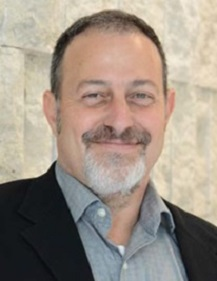 | Pragmatic Randomised Trial WorkshopsThe WAHTN and UWA School of Population and Global Health are proud to host Professor Merrick Zwarenstein to present a number of workshops that focus on pragmatism in randomised controlled trials and how to design and evaluate them to maximise applicability in real-world practice settings. Merrick will be running an introductory level half-day workshop (4 November) and 3-day intensive short-course (5-7 November). Course fees are heavily subsidised (by 70%) by the WAHTN and UWA School of Population and Global Health. Specific details and the workshop flyer are available here.
Register at: http://trybooking.com/BETSA (Please note that places are limited). Half day workshops range in price are $85 for UNDA students and-$100 for UNDA staff while the three courses are $325 and $400 respectively. Two papers worth reading to help understand what pragmatic randomised clinical trials are can be found here and here. |
June 2019 | |
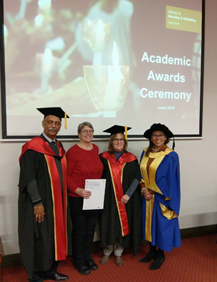 | Award winning nightPhD graduate, Kylie Davies, received both her PhD degree and the inaugural Higher Degree by Research Award from Nursing in June 2019. This award is given to the student with the highest examiner recommendation for their completed thesis and highest number of publications throughout their candidacy. Her supervisory team consisted of Professors Leanne Monterosso, Max Bulsara, Anne- Sylvie Ramelet. Kylie is photographed here with Max Bulsara, (Kylie), A/Prof Caroline Bulsara and A/Dean of Nursing & Midwifery, Prof Karen Clark-Burg. |
May 2019 | |
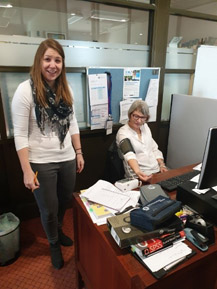 | Checking our blood pressureDr Amanda Timler’s project into the potential benefits of medical cannabis is getting closer to getting underway with the recent delivery of a new device to monitor blood pressure and heart rate in the study’s participants. While the device was in the IHR, staff took the opportunity to check their own blood pressure. The picture to the left shows Amanda with Professor Beth Hands, the previous Director of the IHR getting her BP measured. Amanda is planning to commence recruiting participants into her study in July after a trip with several other IHR colleagues to the 13th International DCD Conference, which is being held in Finland in early June. |
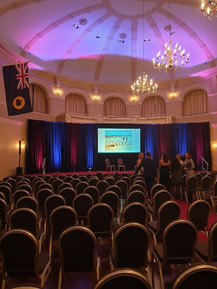 | Fund raising for UNDA researchThe Women & Infant Research Foundation (WIRF) is supporting research initiatives by two Notre Dame researchers – Prof Megan Galbally and Dr Aime Powell. Perinatal psychiatrist and co-director of Women’s Health at KEMH, Megan is undertaking a study into factors during pregnancy that impact on the emotional wellbeing in women and outcomes for children. Aime is extending her work in cervical cancer prevention through a national collaboration with local clinicians and health service providers to improve the level of cervical screening in remote Aboriginal communities in WA (see here for details). Both these initiatives, together with other research funded by WIRF were discussed at a ‘Supporters Night’ held in the Government House Ballroom this month. |
April 2019 | |
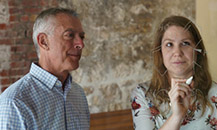 | Medical cannabis study still in the newsMedia interest in the IHR medical cannabis and dementia study continued through this month with another study occurring in the local newspaper – The Herald. The photo shows lead researchers, Dr Amanda Timler and Professor Jim Codde. These media awareness of this study has resulted in numerous enquiries from aged care facilities and the wider community demonstrating the great desire to find better ways to support people with dementia. Further details on the disease and agencies that provide support can be found on the Dementia Australia web site. |
 | Women talking to WomenIHR post-doctoral research fellow, Dr Aime Powell, is investigating the impact of the WA cervical screening program and national HPV vaccination program on Aboriginal women’s health outcomes. As part of her studies, Aime is keen to ensure her work has an impact on the women she sees all too often in the cancer statistics she analyses. Flying to Broome, she recently met with key stakeholders to try and appreciate real world barriers. Dr Powell said she “wanted to know how to truly reach the women and better explain the importance of cervical cancer prevention?” One idea that really stood out was “Women talking to women” and move away from written resources and create something relatable. “Hearing cervical cancer survivor experiences, makes the risk of cervical cancer real (i.e. it could happen to me) and can encourage us to talk to a GP about the importance of preventing this disease.” In partnership with SJoG Subiaco Hospital, the Australia Gynaecological Cancer Foundation, Kimberley Aboriginal Medical Health Service, the WA Cervical Cancer Prevention Program, UWA and the IHR, Aime has created some short videos of two women who were cervical cancer survivors sharing their experiences and imploring other women to be screened. These will be released later this year. |
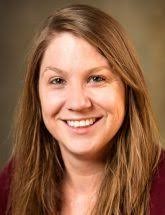 | Medical cannabis & dementia studyNews broke in early April that IHR researchers were about to commence a study aimed at evaluating the potential of medical cannabis in improving the quality of life of people with dementia. The story was covered by many news outlets including The West Australian and Australian Ageing Agenda. Dr Amanda Timler, a recent PhD graduate from Notre Dame, is being funded by the pharmaceutical company MGC Pharmaceuticals to undertake the study with support from Professors Jim Codde, Max Bulsara and Assoc Professor Caroline Bulsara. While it is unlikely cannabis based products can reverse the disease or improve memory loss, there is some evidence it may help alleviate agitation and aggression resulting in improved quality of life. Worldwide interest in this type of research is evidence in recent scholarly articles like this one but further work is required. The current study will be completed by mid-2020. |
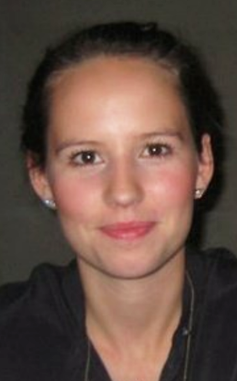 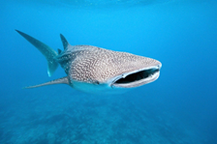 | Farvel NannaIHR staff and HDR students have said goodbye to Danish PhD student, Nanna Bjerg Eskildsen, after she return back home after a brief stay working with A/Prof Caroline Bulsara. Nanna wrote “Time flies and my visit at IHR has already come to an end. I’ve had a great time visiting Caroline and meeting all the nice colleagues at IHR. We have had interesting discussions on the empowerment concept amongst cancer patients and Caroline introduced me to interesting research networks. While here, Caroline and I have prepared an article describing the development and initial validation of a new patient-reported outcome measure, the Cancer Patient Empowerment Questionnaire (CPEQ), which measures empowerment in cancer patients during follow-up.” Nanna traveled around WA for a few weeks got to swim with whale sharks and hike in the incredible gorges in Karijini. Hopefully this is just the beginning of a longer collaboration between Caroline and Nanna as they plans for another article comparing Nanna’s empowerment questionnaire the CPEQ and Caroline’s questionnaire the PES. On parting, Nanna said “One thing is for sure, I’m definitely coming back to Australia again!” We certainly hope she does. |
March 2019 | |
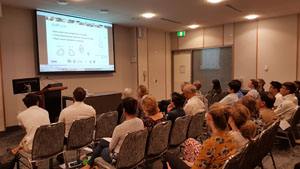 | WABRC Inaugural Professional Network MeetingResearch was showcased by WA Bone Research Collaboration (WABRC) at their Inaugural Professional Network Meeting held March 7 at University Club. The meeting was chaired by Dr Paola Chivers, founder and co-lead of WABRC. The keynote address “From little things, big things grow!” was delivered by Professor Beth Hands. The showcase had snap shots of clinical perspectives Adjunct Professor Aris Siafarikas (Perth Children’s Hospital) and Professor Richard Prince (Sir Charles Gairdner Hospital); exercise prerecording with Adjunct Dr Timo Rantalainen, cancer perspectives with Adjunct Nicolas Hart and nutrition Dr Marc Sim (ECU). Clinician Dr Kiranjit Joshi discussed her PhD research in Osteogenesis Imperfecta. The networking event brought together a range of guests from the clinical, research and community settings. WABRC continue to strive toward community driven high quality research using effective interventions. They have a number of future research endeavours underway or in planning stage with future research opportunities becoming available. To keep abreast of all the WABRC action follow us on www.twitter.com/WABRC. |
February 2019 | |
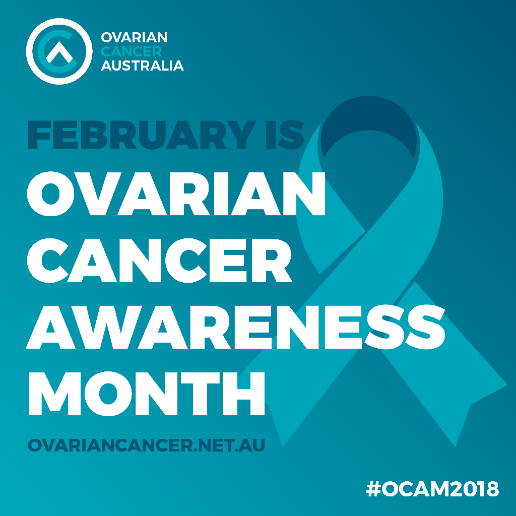 | Ovarian cancer project in the newsSeveral researchers within the IHR are involved with researchers in the $5 million Continuous Improvement in Care – Cancer project being led by Professor Christobel Saunders. One of the sub-studies in the project involves working with women diagnosed with ovarian cancer. As part of the national ovarian cancer awareness month, IHR adjunct, Professor Paul Cohen, and Associate Professor Caroline Bulsara were recently cited in a story in the Sunday Times that is seeking to identify patient reported outcomes measures that matter most to the women. A copy of the article can be read here. |
 | Visiting Danish doctoral studentAssoc Professor Caroline Bulsara is hosting a Danish PhD student, Nanna Bjerg Eskildsen at the IHR. Nanna is in the final year of her doctoral studies and is developing and testing a Danish cancer patient empowerment measure for patients post active treatment. Nanna’s work is very much in keeping with the focus of Caroline’s previous doctoral studies in the area of cancer patient empowerment and instrument development (Patient Empowerment Scale or PES). Aside from co-authoring two publications, they are testing the PES alongside the Danish instrument with 2,000 Danish cancer patients. Nanna has also linked into the QEII SolarisCare research team (of which Caroline is a member) and will be hosted by team leader, Professor David Joske to speak in March about her work and how it translates into an Australian context. |
 | Industry funding for researchFollowing a year of working closely together to develop a research proposal and obtain HREC approval, the IHR and MGC Pharmaceuticals have just entered into agreement to undertake a study into the psychosocial benefits of medical cannabis in patients with dementia. Working with local aged care facilities, the research team will involve the residents, a family member and residential carer to assess how the orally administered drug impacts of the participant’s quality of life, anxiety and other behavioural measures. The project is being coordinated by recent UNDA PhD graduate, Dr Amanda Timler who can be contacted for further details. |
 | Online appointment bookingThe IHR has introduced a new online appointment booking system to make it easier for staff and students to find a mutually convenient time to talk to one of our biostatisticians. The system automatically syncs with the IHR staff calendars so their availability is easily seen. People wanting to book a meeting will receive an email so the event can be added to their calendars and also receive links that can either cancel or reschedule the planned meeting if required. Link to the booking system can be find on the IHR web site or by clicking here. |
October 2018 | |
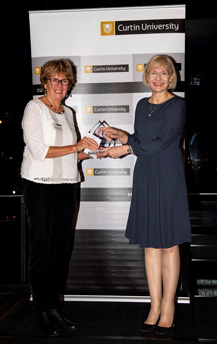 | Community Service AwardPhD student, Gloria Sutherland, was the recipient of Curtin University’s 2018 Alumni Achievement Award for Community Service. This award is open to all Curtin graduates who have made a significant contribution to the wellbeing of others. During her working career, Gloria led the Western Australian Cervical Cancer Prevention Program, was the Director of Kimberley Population Health Unit and was a senior policy officer who made significant contributions to establishment the national bowel cancer screening program. Since “retiring” Gloria spends her time undertaking her PhD studies at Notre Dame into the health needs of older, homeless women in the Perth metropolitan area. The photo shows Gloria receiving her award from Curtin University’s Vice Chancellor, Professor Deborah Terry. |
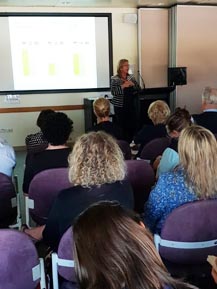 | Project update at SCGHIn late 2017, a collaborative research team led by Professor Christobel Saunders, that included three IHR academics, won a substantial grant from the Cancer Research Trust to bring value-based healthcare into the public and private hospital settings for cancer patients. The project, “Patients First: The Continuous Improvement in Care Cancer Outcomes” has caught the interest of many organizations and health services. As a result, Christobel and co-Chief Investigator, Dr Angela Ives, were invited to present a project update as part of Research Week held recently at Sir Charlie Gardiner Hospital. Further details on the project can be found here. |
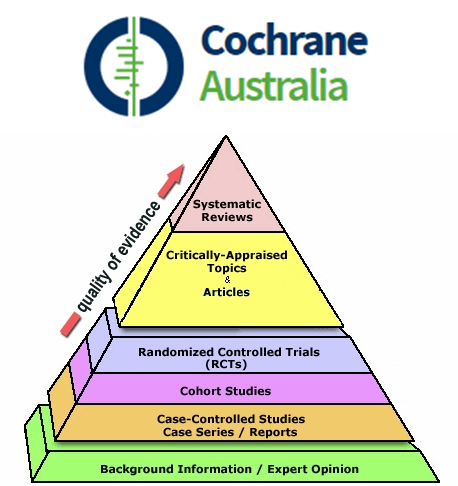 | Systematic review & meta-analysis courseThe IHR has arranged with Cochrane Australia to run a course on undertaking a systematic review and meta-analysis on 6-7 November on the Notre Dame Fremantle campus. Professor Max Bulsara will be co-facilitating the course with other experts from Monash University and UWA. University staff, higher degree students, and external academics and researchers are invited to attend by registering their interest here. |
September 2018 | |
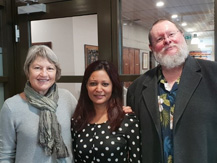 | First publicationPhD student, Ranila Bhoyroo, is well on her way to complete her studies with the release her first research paper titled “Investigating motor planning in children with DCD: Evidence from simple and complex grip-selection tasks” in the journal of Human Movement Science. The accompanying photo shows Ranila with her two supervisors, Professor Beth Hands and Dr Adam Wigley. Ranila has also just returned from Utrecht, Holland, where she received specialist training in the analysis of MRI scans used in her research. |
August 2018 | |
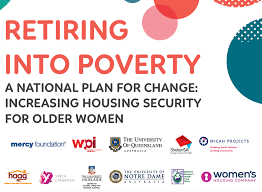 | National prominence for PhD studentOlder single women are one of the fastest growing sections of the community experiencing homelessness, often for the first time. Gloria Sutherland is undertaking a PhD examining “The impact of homelessness on the health status and health needs of older women in the Perth metropolitan area”. As part of an extensive national network developed during the course of her studies, Gloria brought her insights into a recent report “Retiring into Poverty” by the Mercy Foundation’s National Working Group that contains recommendations for policies and actions to enable older women access to affordable, safe, secure and appropriate housing and enjoy good health as they age. |
July 2018 | |
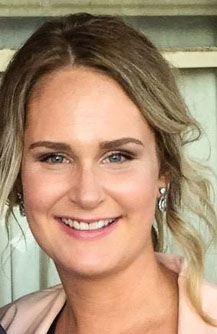 | Cindy Sullivan FellowshipIHR researcher, Dr Aime Powell, was recently awarded the 2018 Cindy Sullivan Fellowship by the Australian Gynaecological Cancer Foundation. This two year fellowship will provide Aime with a salary and some project funds to enable her to undertake her project entitled “Aboriginal women at increased risk of cervical cancer incidence and mortality: Quantifying the risk in an era of national prevention programs”. Aime’s research is also supported by St John of God Hospital Subiaco with the close clinical input from Adjunct Professor Paul Cohen. Aime has a passion for research in the field of gynaecological cancer as highlighted in her most recent paper titled RANZCOG Fellows’ adherence to guidelines following cytological prediction of cervical adenocarcinoma-in-situ: Cause for concern? that was published in ANZJOG. |
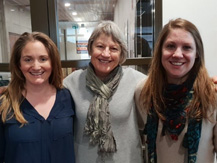 | Graduation for young researchers IHR researcher, Professor Beth Hands, reached another milestone by successfully seeing the graduation of two of her HDR students. Casey Murphy’s Master of Philosophy thesis was titled “Parent rated importance of active play and organised physical activity for young children: The parents’ perspective.” Casey was co-supervised by Dr Duncan Picknoll. Amanda Timler completed her PhD which was titled “The Who.i.am Study: Identity formation and motor competence among adolescents.” She was co-supervised by A/Prof Fleur McIntyre. Both students were enrolled through the School of Health Sciences. |
May 2018 | |
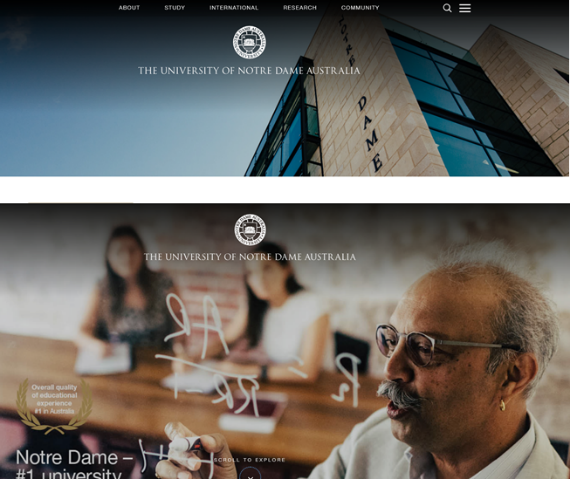 | A Star is Born – UNDA’s new web site Notre Dame has just launched its new web site which provides a more modern and interesting description of the courses and activities available at the University. One of the ‘Stars’ highlighted on the site is the IHR’s very own Chair of Biostatistics, Professor Max Bulsara. Max is known for his expertise in undertaking complex analysis but also the ease with which he can convey these skills to new and eager researchers. It is great to see the important role that Max, and his biostatistics team in the IHR, has made to the research success at Notre Dame recognized in this way. |
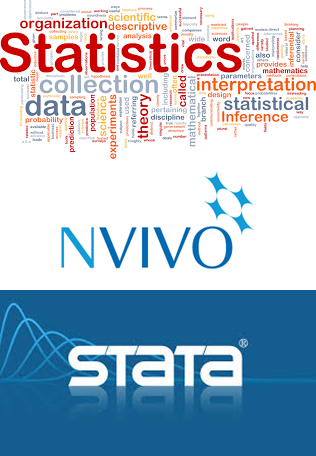 | Upcoming statistic courses In the coming few weeks, the IHR will be running three statistics training courses. Friday 8th June: Introduction to QSR NVivo (Version 11) will be offered by A/Professor Caroline Bulsara. This hands-on session is intended to provide the necessary experience to analyse qualitative data. Monday 25th June: Introduction to STATA v15 will be run by Dr Paola Chivers and will provide an understanding of using the drop-down menus of STATA to undertake data management and simple statistics. Monday 25th June: Logistic Regression. Provided by Professor Max Bulsara, this workshop will provide give you the practical knowledge required to undertake logic regression modelling. For further details, please email IHR@nd.edu.au |
 | Launch of National Guidelines IHR Adjunct researcher, Dr Asha Bowen has led a team whose work has resulted in the publication of the first National Healthy Skin Guidelines. The report is housed on the Telethon Kids Institute website with a suite of learning tools including photographs, a visual clinical handbook and an interactive questionnaire. The Guidelines were launched last week by Indigenous Health Minister Ken Wyatt and has been endorsed by close to 20 health organizations. Details on how skin infections affect Western Australian children and adolescents can been found in one of the group’s recent publications. |
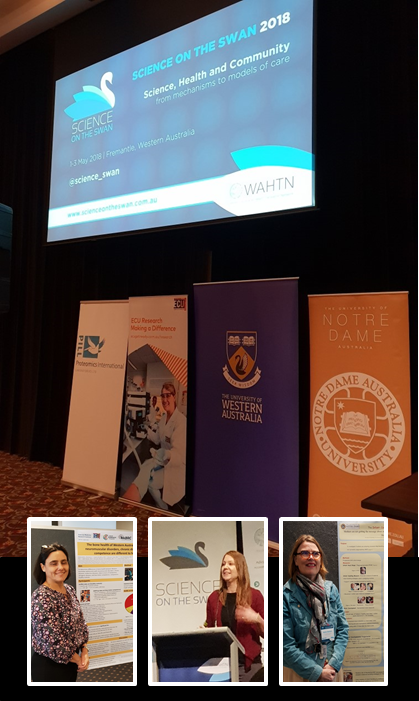
| Science on the Swan - 2018Spanning three days, the 2018 Science on the Swan Conference was held at the Esplanade Hotel in Fremantle. One of the keynote speakers at this year’s conference was Prof Jill Zwicker who talked about her work in DCD in children. Jill’s work is closely aligned with research by a number of other IHR staff and HDR students, some of whom also presented their studies. One of the highlights of the event was the attendance of the Federal Minister for Aged Care and Indigenous Health who announced $6.1 million in funding to the WAHTN over the coming 3 years. |
April 2018 | |
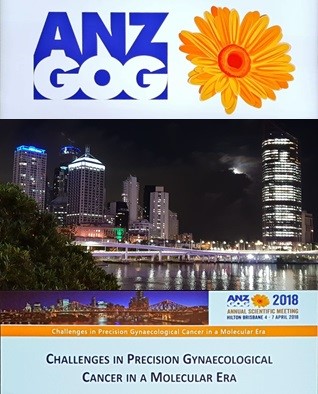 | ANZGOG Scientific Meeting The Australia New Zealand Gynaecological Oncology Group (ANZGOG) held its Annual Scientific Meeting in Brisbane last week. The purpose of ANZGOG is to improve outcomes and quality of life for women with gynaecological cancer through conducting and promoting cooperative clinical trials and undertaking multidisciplinary research into the causes, prevention and treatments of gynaecological cancer. This year’s Scientific Meeting was led by the IHR’s Adjunct Professor Paul Cohen with Dr Aime Powell and Professor Jim Codde attending. |
March 2018 | |
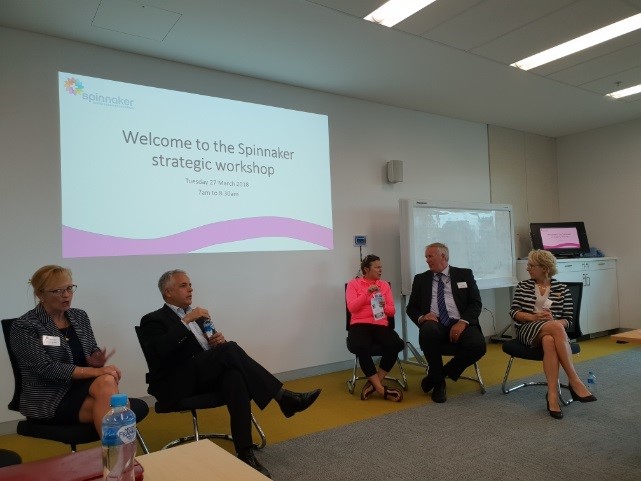
| Spinnaker planning session Spinnaker Health Research Foundation is a key funding source for health research in the south metropolitan area that all research active staff and higher degree students should know about. The Foundation provides travel bursaries, PhD scholarships and small to medium sized research grants. At a recent workshop the Foundation received input from Paul Forden, CEO SMHS, Geraldine Carlton, ED Organisational Development & Transformation, Professor Fiona Wood, Burns specialist, Tim McInnis, Head of Development, Telethon Kids Institute & Professor Shirley Bowen, CEO SjoG Subiaco. |
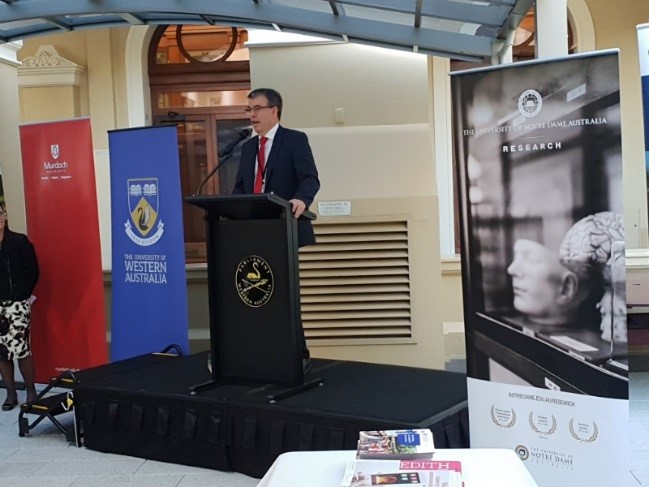
| Science meets Parliament On the 13th March, the Minister for Water, Fisheries, Forestry, Innovation & ITC and Science, the Honorable Dave Kelly and Professor Dawn Freshwater (UWA Vice Chancellor) hosted the inaugural ‘Science meets Parliament’ event to enable members of parliament to learn about initiatives and opportunities directly from researchers from all the Western Australian universities. The event was well attended by representatives of Notre Dame and provided a great opportunity to network within Parliament House. |
February 2018 | |
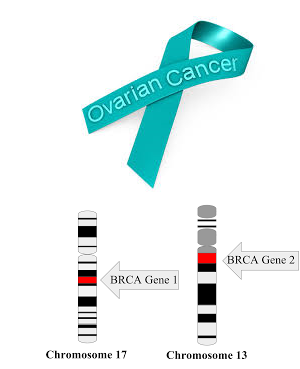
| Ovarian cancer project The Australian Government has just announced it will provide almost $3 million to support a ground-breaking project that helps women identify whether they are at risk of developing ovarian cancer. The project will be run by the Peter MacCallum Cancer Centre in Melbourne where tissue samples of 11,000 women diagnosed between 2001 and 2016 will be tested to see if they are carriers of the BRCA gene mutations. As reported on the ABC News, approximately 1,500 Australian women were diagnosed with ovarian cancer last year and estimated 1,000 more died. IHR Adjunct Professor, Dr Paul Cohen, is a co-investigator in the study which will see Western Australian patient samples from SJOG Subiaco and KEMH included in the study. |
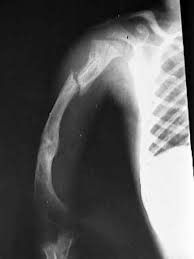
| Increasing risk of osteoporosis in WA children Research by the WA Bone Research Collaboration (WABRC) has confirmed that the number of children aged between 0-16 years presenting at PMH with fractures has risen significantly over the last decade. Adjunct Professor Aris Siafarikas suggests this may be a sign of increased risk of osteoporosis in our community and is seeking to establish an integrated care clinic at PMH for children with Osteogenesis Imperfecta. Further details on this condition can be found on patient support group’s web site. For people with an interest in this research and have a suitable background, the WABRC has just advertised for a PhD student to join the team through Notre Dame (see below). |

| Lunchtime statistics series The Institute for Health Research has just commenced running its series of lunchtime seminars on a variety of research and statistics topics. Over 13 people attended the first session which suggests the following sessions may also be well attended. Details of the sessions can be found here but please remember to reserve your spot as there is limited number of places in the room. Similar events run at PMH are also listed on the IHR Web site. These can be accessed remotely by using Scopia video conferencing. |
January 2018 | |

| Is social media affecting your mental health?School of Health Sciences tutor and PhD candidate Carmen Papaluca is exploring this intriguing subject in her PhD thesis titled “The Power of Pictures: Exploring the association between the level and type of Instagram use and wellbeing among female emerging adults.” Although some of her initial findings were reported in June 2017, her work has just received coverage in SciTech’s online magazine, Particle. Go online and see what she has found! |

| PhD Scholarship available (2018-2020)Notre Dame is offering a PhD scholarship worth $30,000 per annum or up to three years for a suitable applicant to join the successful international collaborative research team looking into bone health in apparently healthy and/or diseased adults and children. WA Bone Research Collaboration (WABRC) was established in 2016, and includes Dr Paola Chivers (Notre Dame), Dr Nicolas Hart (Edith Cowan University), Clinical Lead Adjunct Professor Aris Siafarikas (Princess Margaret Hospital) and Dr Timo Rantalainen (University of Jyvaskyla). |
December 2017 | |
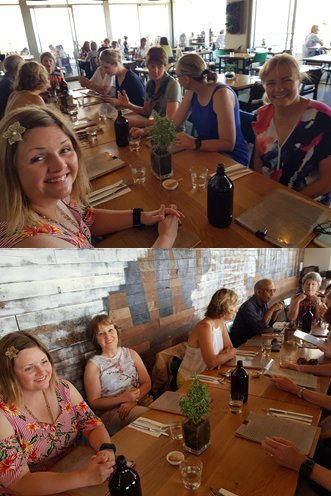
| Merry Christmas from the IHRThis year has been a good one for the IHR with many new faces joining the team and as outlined in the Institute’s 2017 Annual Report. Despite the collegial nature of the team, the recent end-of-year breakfast was the first chance for some of our part-time staff to talk to the ‘names’ of those they had heard of but yet to meet. On behalf of the whole team, we wish all our students, colleagues and collaborators a very Merry Christmas and Happy new Year. We look forward to seeing you all in 2018! |
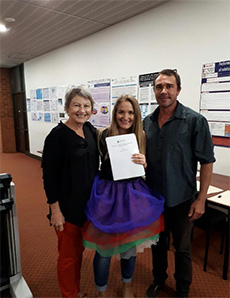
| Another one bites the dust!Masters candidate, Ms Casey Murphy, has just submitted her MPhil thesis for examination. Casey’s thesis is titled “The Importance of active play and organised physical activity for young children: The parents’ perspective.” Casey was been working towards her research degree on a part-time basis through the School of Health Science. Pictured here in the ceremonial “dress” with her two supervisors, Professor Beth Hands and Dr Duncan Picknoll just prior to presenting her thesis to the Research Office for examination by independent reviewers. |
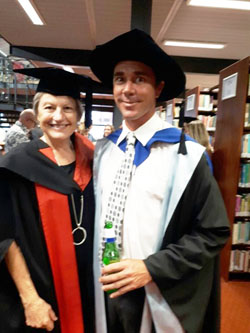
| Introducing Dr Duncan PicknollGraduating with his Doctorate this week was Dr Duncan Picknoll. Duncan’s thesis was titled “The nature and scope of outdoor education in Western Australia”. Although enrolled to do his doctorate through the School of Education, Duncan is the Senior Lecturer and Coordinator of the Bachelor of Outdoor Recreation in the School of Health Sciences so well known by many students, some whom were there to cheer for him as he received his degree. Duncan was supervised by Professor Beth Hands who is pictured with him in the adjoining photo. |

Connect with Notre Dame on Social Media
Australia
Fremantle
Broome
Sydney